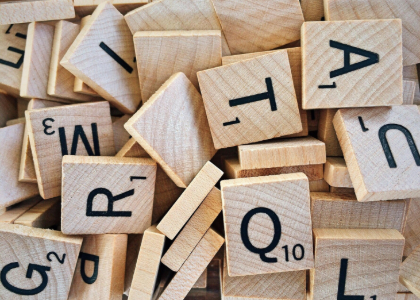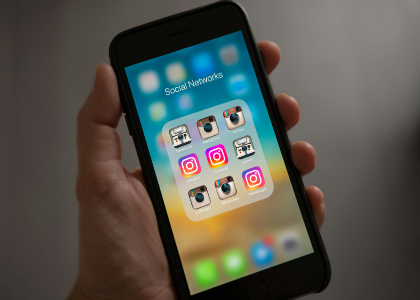Blog

Cultural Sensitivity in Logo Design: Navigating Diversity for Inclusive Branding
Today, we're diving into a realm where creativity, culture, and identity intertwine: logo design. You know, those small but mighty symbols that stand for brands we love.
Have you ever wondered how these logos come to life, and more importantly, how they reflect the diverse world we live in? Well, you're about to embark on a journey into the realm of cultural sensitivity in logo design.
The Intersection of Artistry and Identity
When I first delved into the world of logo design, I was struck by the profound impact a simple image could have on shaping perceptions and emotions.
But here's the kicker: a logo isn't just an image. It's an embodiment of a brand's values, personality, and yes, its cultural awareness.
As the global marketplace continues to expand, our logos must evolve beyond just eye-catching visuals; they must resonate with the diverse audiences we seek to engage.
I've found that embracing cultural sensitivity in logo design isn't about tip-toeing around differences. Instead, it's about celebrating those differences and weaving them into the very fabric of your brand's visual identity.
Unveiling the Layers of Cultural Sensitivity
Understanding the Cultural Landscape:
To create logos that truly connect, you must first embark on a journey of understanding. Dive into the cultures you wish to resonate with. Learn about their symbols, colors, and the meanings they carry.
For instance, did you know that the color red can symbolize luck and celebration in some cultures, while in others, it signifies danger? Taking the time to learn these nuances can help you make informed design decisions that honor cultural sensitivities.
Point of Contact
"In today's interconnected and diverse world, the significance of cultural sensitivity in logo design cannot be overstated. Whether you're crafting a visual identity for a tech startup, a digital product, a restaurant, or any other business.
Your logo acts as the first point of contact with your audience. It's a visual representation of your brand's values, ethos, and offerings. Therefore, it's essential to approach logo design with careful consideration for cultural diversity.
Balancing Tradition and Modernity:
In logo design, the dance between tradition and modernity is both an art and a science. It's about finding that sweet spot where classic elements blend seamlessly with contemporary aesthetics.
Imagine merging a traditional motif with a sleek, minimalist design – that's where the magic happens. Remember, cultural sensitivity isn't about rigidly adhering to tradition, but about capturing its essence in a way that speaks to today's audience.
Embracing Diversity as a Guiding Principle:
One of the most exciting aspects of logo design is its power to bridge gaps and foster unity. As you craft your logos, envision them as ambassadors of diversity.
How can your design spark conversations and invite people from various backgrounds to engage? By making diversity a guiding principle, you're not just creating logos – you're fostering connections that transcend borders.
Embracing Cultural Symbols:
You're designing a logo for a global company that aims to celebrate unity among different cultures. As you brainstorm ideas, you come across a symbol that holds deep significance in multiple cultures.
Here's where cultural sensitivity takes the stage. While it might be tempting to use that symbol, pause and consider its cultural meanings. A symbol that signifies harmony in one culture might hold a different connotation in another.
This is where in-depth research becomes your guiding star. Dive into the cultural narratives surrounding the symbol, and only then decide if it aligns with your brand's message of unity.
Colors that Speak Volumes:
Colors are like languages, conveying emotions and meanings unique to each culture. In logo design, color choices aren't just about aesthetics; they're powerful messengers. Take the color white, for instance.
In some cultures, it represents purity and new beginnings, while in others, it's associated with mourning. A classic example is the red color – it might evoke feelings of passion and love in one culture, while symbolizing luck and prosperity in another.
When you're designing a logo for a culturally diverse audience, consider the colors you're using and the messages they'll convey.
"Cultural sensitivity in logo design is a bridge that spans across cultures, connecting hearts and minds."
Tailoring for the Target Audience:
Imagine you're crafting a logo for a brand that's expanding into a new market with its own cultural nuances. Your challenge? Creating a logo that resonates with the local audience while staying true to the brand's essence.
This is where the beauty of customization comes in. Dive deep into the culture's aesthetic preferences, symbolism, and even historical context.
Infuse these insights into your logo design, ensuring that it feels like a native creation rather than an import. Remember, a logo that speaks directly to its audience is more than just a symbol – it's an invitation to connect.
Fostering Respectful Conversations
Educating Through Design:
As a logo designer, you're not just crafting visual identities; you're also participating in a larger conversation about culture and identity. Your designs can spark dialogues and shed light on important cultural topics.
For instance, by integrating elements from indigenous cultures, you can contribute to preserving and celebrating their heritage.
However, this comes with a responsibility – to educate your audience about the significance of these elements. Whether through your website or social media, sharing the stories behind your designs creates an opportunity for cross-cultural understanding.
The Evolving Nature of Identity:
Cultural identities are not static; they're dynamic, ever-evolving narratives. This principle holds true for logo design as well. While crafting a logo that resonates with a particular culture, recognize that culture is not a monolith.
It's a mosaic of stories, traditions, and perspectives. Therefore, your logo should reflect this complexity. Allow your designs to honor the interplay of identities within a culture.
This might involve combining elements that represent different aspects of that culture's history, present, and aspirations.
Crafting Connections Beyond Borders
The Impact of Inclusivity:
Imagine coming across a logo that instantly resonates with you, not just because it's visually striking, but because it captures the essence of your cultural heritage. This is the power of cultural sensitivity in logo design.
Inclusive logos create a sense of belonging for individuals from various walks of life. They're like universal languages that everyone understands, regardless of their background.
By embracing diversity, you're fostering an environment where everyone's story is acknowledged and valued.
The Role of Feedback and Iteration:
No logo design is perfected in a single stroke of creativity. Iteration is your faithful companion on this journey. When it comes to culturally sensitive logo design, feedback becomes even more vital.
Share your designs with individuals from the culture you're representing. Their insights can provide valuable perspectives that ensure your logo doesn't inadvertently misinterpret cultural elements.
Feedback loops not only improve your design but also show respect for the culture you're drawing from.
FAQ: Your Curiosities Answered
Q1: Isn't cultural sensitivity stifling creativity? A1: Not at all! Cultural sensitivity fuels creativity by introducing new perspectives and design elements that can elevate your logo's impact.
Q2: How do I avoid cultural appropriation in my designs? A2: Research, research, research! Deeply understand the cultures you're drawing from and consult with experts if needed to ensure authenticity and respect.
Q3: Can I incorporate multiple cultural elements into one logo? A3: Absolutely. However, it's crucial to strike a harmonious balance to avoid overwhelming or confusing your audience.
Q4: What if my brand targets a global audience? A4: Global appeal doesn't mean cultural neutrality. Instead, aim for universally meaningful symbols and colors that transcend cultural boundaries.
Q5: How can I ensure my logo remains timeless amid evolving trends? A5: Focus on capturing the essence of a culture rather than blindly following trends. Timelessness comes from genuine connections.
Q6: Should I explain the cultural significance of my logo to my audience? A6: If the meaning adds value to your brand story, go for it. Just ensure it's done in a way that educates and doesn't tokenize.
Q7: Can small businesses embrace cultural sensitivity, or is it only for big brands? A7: Every brand can and should! Cultural sensitivity isn't reserved for giants; it's a path to authenticity for businesses of all sizes.
Crafting Inclusivity: Your Logo's Heartbeat
As we wrap up our exploration of cultural sensitivity in logo design, remember that this journey is a continuous one. Just like any relationship, it requires effort, respect, and an open heart.
Your logo isn't just an image; it's a bridge that connects cultures, communities, and conversations.
So, whether you're a seasoned designer or just dipping your toes into this creative ocean, embrace the opportunity to craft logos that resonate with the vibrant tapestry of humanity.
Remember, it's not about mere images; it's about the stories they tell, the connections they forge, and the impact they leave.
So go ahead, create with heart, and celebrate the diverse beauty of our world.
Good luck – Kevin
More tips and tricks on the blog


